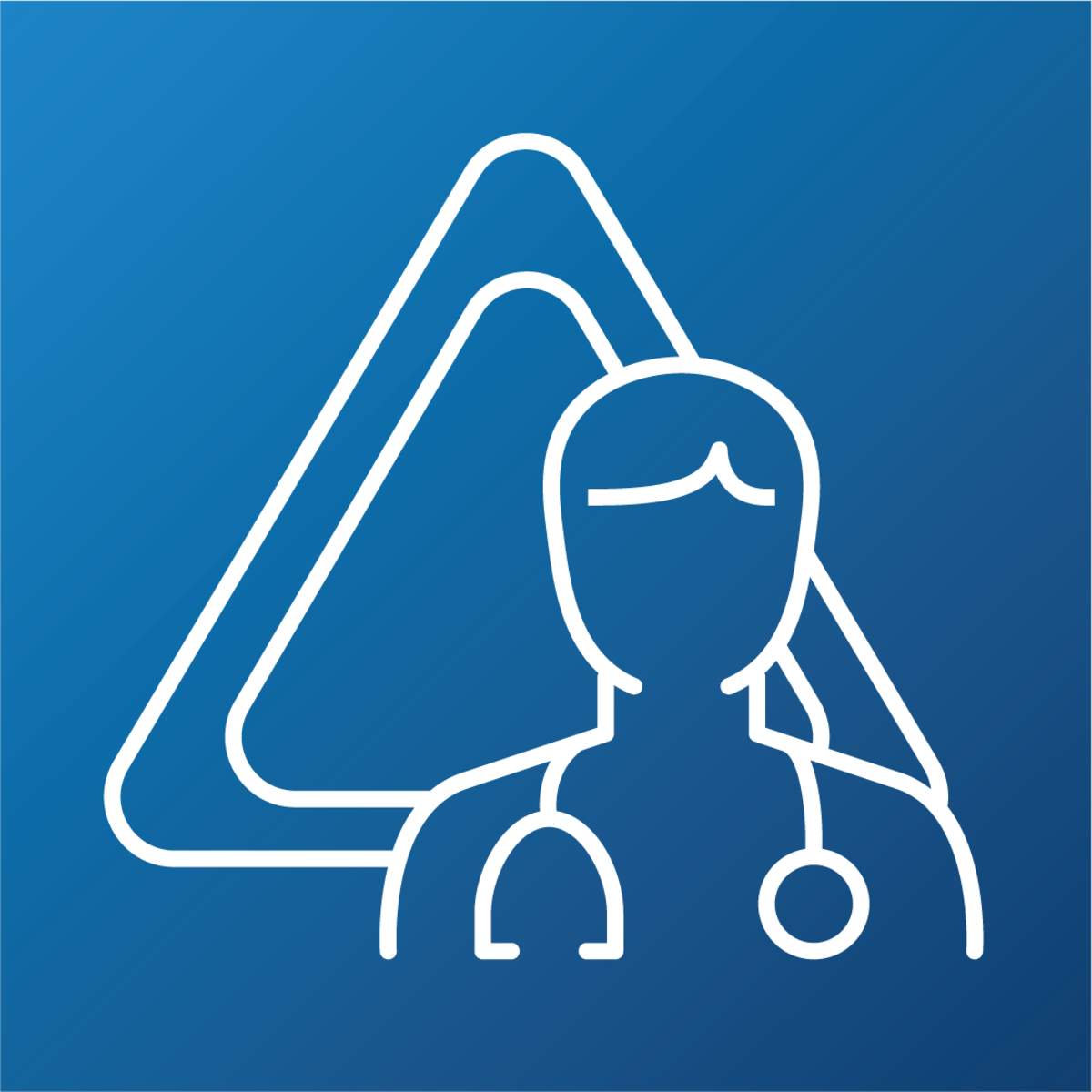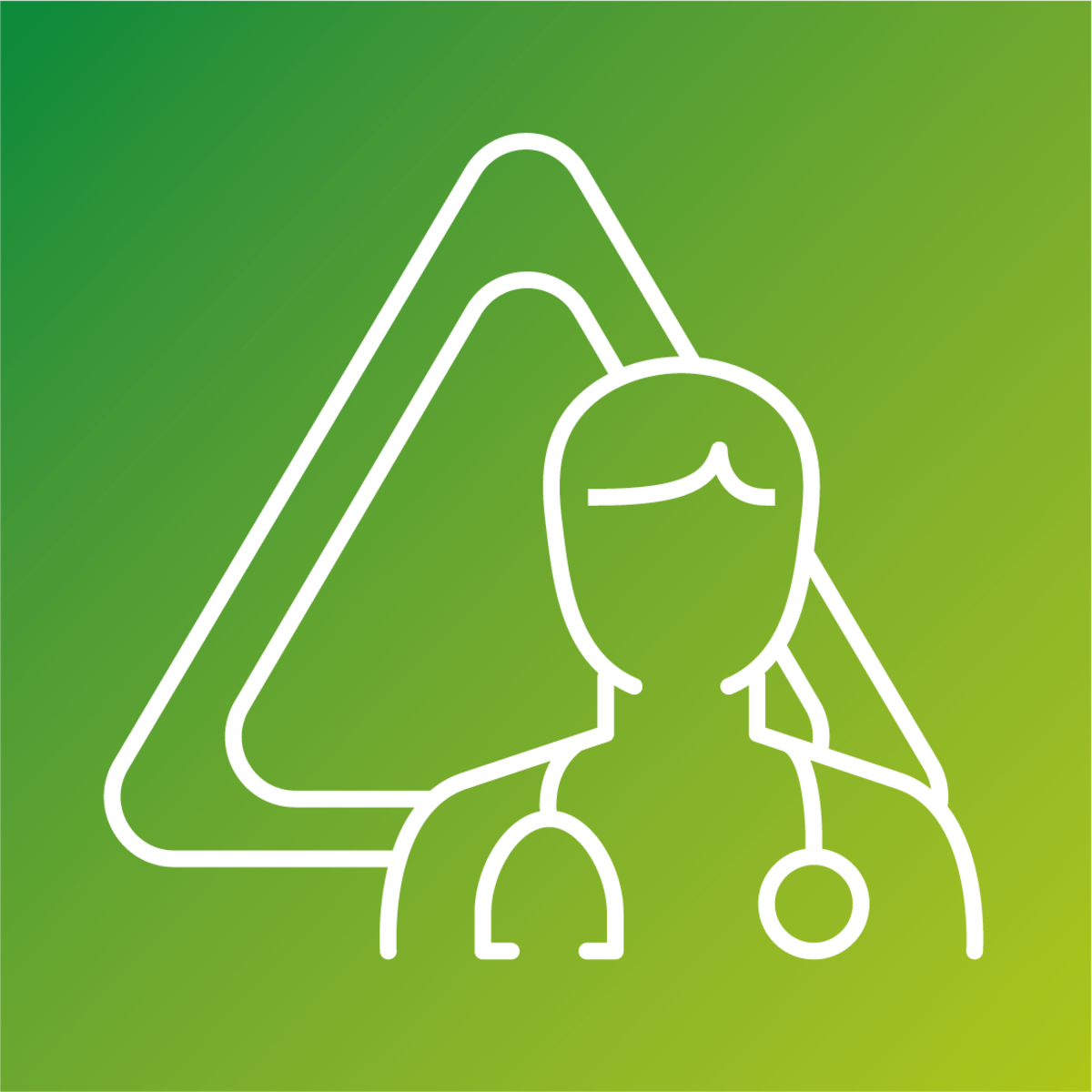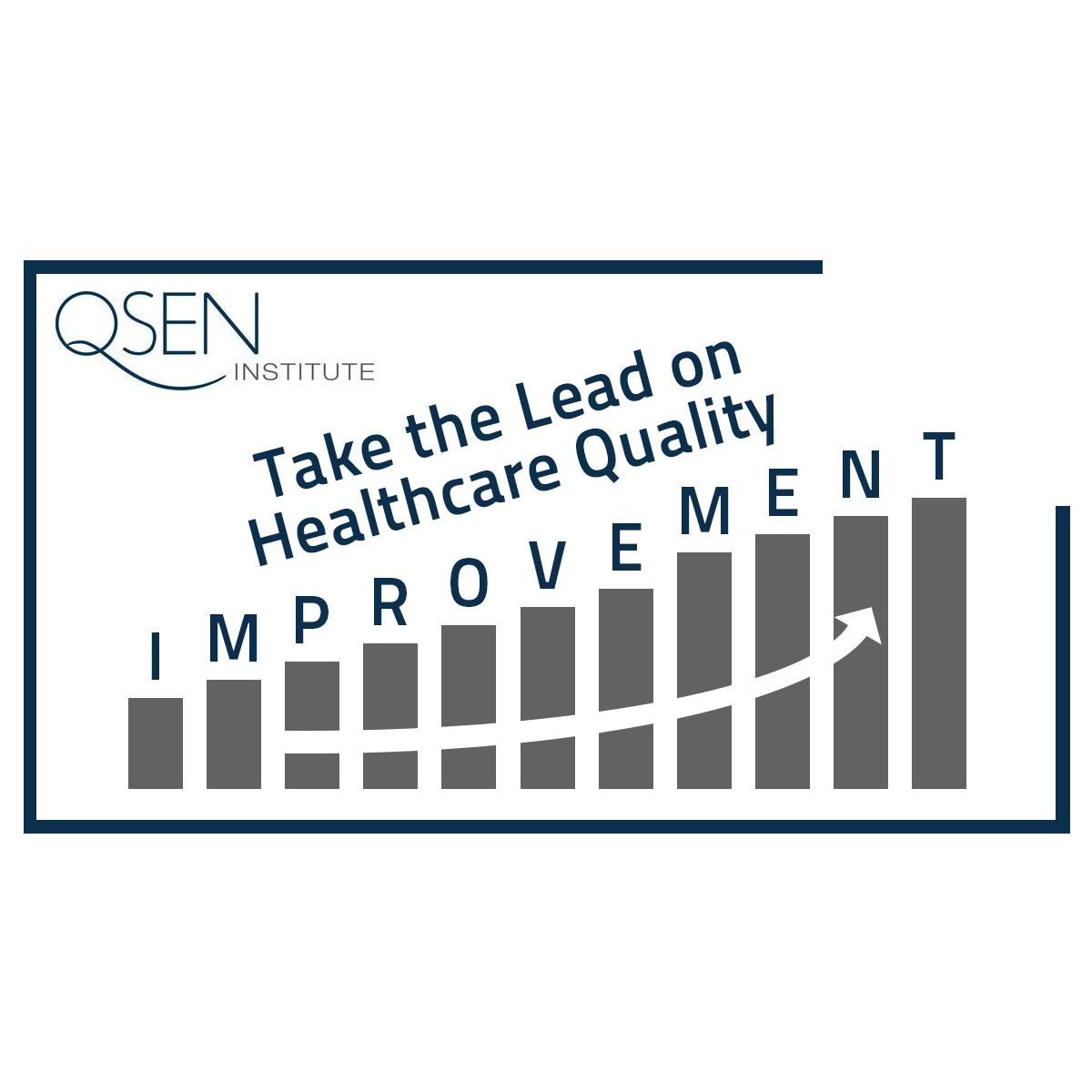Health Program Manager
Health Program Manager: A Career Overview
A Health Program Manager plays a crucial role in the healthcare ecosystem, serving as the architect and overseer of initiatives designed to improve health outcomes for specific populations. They operate at the intersection of public health, healthcare administration, and management, translating health needs and policy goals into actionable programs. Their work involves planning, directing, coordinating, and evaluating health services or initiatives, ensuring they run efficiently and meet their objectives.
Working as a Health Program Manager can be deeply rewarding. You'll have the opportunity to tackle significant health challenges, from managing chronic disease prevention programs to implementing initiatives that address health disparities in underserved communities. This career offers a unique blend of strategic thinking, operational oversight, and direct impact on community well-being, making it an engaging path for those passionate about improving health systems and outcomes.
Introduction to Health Program Manager
What is a Health Program Manager?
A Health Program Manager is a professional responsible for the lifecycle of health-related programs. This includes conceptualizing programs based on community needs assessments or strategic organizational goals, developing detailed plans for implementation, securing funding, managing budgets, and leading teams. They ensure that programs align with regulatory requirements and organizational missions.
The scope of their work is broad, covering areas such as disease prevention, health promotion, healthcare access improvement, maternal and child health, mental health services, and responses to public health crises. They bridge the gap between high-level health strategies and the practical delivery of services, making critical decisions that affect program direction and success.
Essentially, they are the conductors of the healthcare orchestra, ensuring all parts work together harmoniously to achieve a specific health objective. Their leadership and organizational skills are vital for turning health initiatives from ideas into impactful realities.
Where Do Health Program Managers Work?
Health Program Managers are employed across a diverse range of settings within the health sector. Many work in government agencies at the local, state, or federal level, such as public health departments, where they manage community health initiatives or disease surveillance programs. Hospitals and healthcare systems also employ them to oversee specific service lines, quality improvement projects, or patient outreach programs.
Non-profit organizations and community health centers rely heavily on Health Program Managers to run programs focused on specific populations or health issues, often funded through grants. Additionally, opportunities exist in the private sector, including insurance companies managing wellness programs, pharmaceutical companies overseeing patient support programs, or consulting firms specializing in healthcare.
The variety of employers reflects the versatility of the role and the widespread need for skilled professionals who can effectively manage complex health initiatives. You can explore related roles and fields within the Health & Medicine category on OpenCourser.
Making an Impact: The Role in Public Health
The work of Health Program Managers directly contributes to improving public health outcomes. By designing and implementing effective programs, they can increase access to preventive care, manage chronic conditions more effectively, respond efficiently to health emergencies, and promote healthier behaviors within communities.
They play a key role in addressing health disparities by developing targeted interventions for vulnerable populations. Through careful planning and evaluation, they ensure that resources are directed towards initiatives that demonstrably improve health equity and reduce gaps in care. Their efforts contribute significantly to building healthier communities.
Ultimately, a Health Program Manager's success is measured by the positive changes their programs bring to people's lives, whether it's lowering rates of a specific disease, improving maternal health outcomes, or enhancing access to mental health services.
Core Responsibilities
Designing and Launching Health Programs
A primary responsibility is the development and implementation of health programs. This begins with identifying health needs through data analysis, community assessments, or organizational priorities. Managers then design program structures, define objectives, outline activities, and establish timelines.
They are responsible for creating detailed implementation plans, securing necessary approvals, and coordinating the launch. This requires strong planning skills and the ability to anticipate potential challenges. Effective program design is crucial for ensuring the initiative is well-targeted and has a clear path to achieving its goals.
Understanding the principles of effective program creation is fundamental to this role. Health Program Managers must ensure their designs are evidence-based and tailored to the specific context and population they aim to serve.
These courses offer insights into designing and evaluating health programs, particularly in various global health contexts.
Managing Resources: Budgets and Allocation
Financial oversight is a critical aspect of the job. Health Program Managers develop and manage program budgets, track expenditures, and ensure financial accountability. This often involves seeking funding through grant applications or internal budget proposals.
Resource allocation involves making strategic decisions about how best to use available funds, personnel, and materials to maximize program impact. They must balance competing priorities and make tough choices, especially when resources are limited. Strong financial acumen and negotiation skills are beneficial.
Effectively managing resources ensures the program's sustainability and its ability to deliver services as planned. This requires careful monitoring and adjustments throughout the program lifecycle.
This course provides valuable perspectives on financing health initiatives and making decisions about resource allocation.
Building Bridges: Communication and Collaboration
Health Program Managers rarely work in isolation. They must effectively communicate and collaborate with a wide array of stakeholders. This includes clinical staff, administrative personnel, community leaders, partner organizations, funding bodies, and the populations served by the program.
Building strong relationships and fostering collaboration are essential for program success. This involves facilitating meetings, negotiating partnerships, resolving conflicts, and clearly articulating program goals and progress to different audiences. Excellent interpersonal and communication skills are paramount.
They often act as liaisons, translating complex health information for lay audiences or administrative requirements for clinical teams. This ability to bridge different perspectives is key to cohesive program operation.
This book explores strategies for promoting equity through collaboration in community health partnerships.
Measuring Success: Monitoring and Evaluation
Evaluating program effectiveness is crucial for accountability and continuous improvement. Health Program Managers are responsible for developing monitoring and evaluation (M&E) frameworks, collecting relevant data, and analyzing outcomes against program objectives.
This involves defining key performance indicators (KPIs), choosing appropriate data collection methods (surveys, interviews, record reviews), and using data analysis tools to interpret results. Findings are then used to report on program impact to stakeholders and inform decisions about program adjustments or future directions.
A strong understanding of evaluation methodologies ensures that programs are assessed rigorously and that lessons learned contribute to better health programming in the future. Data-driven decision-making is central to this aspect of the role.
These courses delve into the specifics of evaluating health programs and measuring their impact effectively.
These books provide comprehensive guidance on health program evaluation methodologies.
Educational Pathways
Foundational Degrees
A bachelor's degree is typically the minimum educational requirement for entry-level positions that can lead to a Health Program Manager role. Relevant undergraduate fields include Public Health, Healthcare Administration or Management, Health Sciences, Nursing, Social Work, or even related fields like Sociology or Biology.
These programs provide a solid foundation in health concepts, healthcare systems, and essential skills like communication and critical thinking. Coursework often covers topics like health behavior, epidemiology basics, health policy, and community health.
Gaining practical experience through internships or volunteer work during undergraduate studies is highly advantageous for breaking into the field.
This introductory course can provide a glimpse into the breadth of public health topics.
Advancing Your Knowledge: Graduate Studies
While not always required, a master's degree is often preferred, especially for management and leadership roles. The most common graduate degrees are the Master of Public Health (MPH) and the Master of Health Administration (MHA). An MBA with a healthcare concentration is also valuable.
An MPH typically focuses on population health, epidemiology, biostatistics, environmental health, and health policy, preparing graduates for roles in public health agencies and non-profits. An MHA concentrates more on the business and management aspects of healthcare organizations, suitable for roles within hospitals or healthcare systems.
Graduate programs deepen specialized knowledge and enhance analytical, leadership, and strategic planning skills, significantly boosting career prospects.
Key Academic Subjects
Regardless of the specific degree path, certain subjects are fundamental for aspiring Health Program Managers. Epidemiology (the study of disease patterns) and biostatistics are crucial for understanding health data and research. Health policy and law courses provide insight into the regulatory environment.
Healthcare finance and economics are important for budget management and resource allocation. Program planning and evaluation coursework directly prepares individuals for core job functions. Ethics in healthcare is also a vital area of study, given the sensitive nature of health programs.
Strong analytical and communication skills, often honed through research methods and health communication courses, are universally important across all these subjects.
These books provide insights into epidemiological approaches relevant to management and the broader context of health determinants.
Online Learning and Skill Development
Leveraging Online Courses for Foundational Knowledge
Online courses offer incredible flexibility for building foundational knowledge or supplementing formal education in health program management. Platforms like OpenCourser provide access to courses covering Public Policy, project management, Data Science basics, and specific health topics from reputable institutions.
Are online courses suitable for building a career foundation? For many foundational concepts and technical skills, absolutely. They allow learners to acquire knowledge at their own pace and often at a lower cost than traditional programs. They are particularly useful for career changers needing to understand core principles or professionals looking to update their skills.
Using features like the "Save to List" button on OpenCourser can help you curate a personalized learning path from the vast selection of available courses in Health & Medicine and related fields.
These courses introduce key concepts in health systems and global health, accessible through online platforms.
Specialized Skills through Digital Learning
Beyond foundational knowledge, online platforms are excellent resources for acquiring specialized skills. Certifications in areas like grant writing, healthcare compliance (e.g., HIPAA regulations), or project management methodologies (like PMP or Agile) can significantly enhance a resume.
Online courses can also provide training in specific software used in the field, such as data analysis tools (Excel, SPSS, R) or project management software. This targeted skill development can bridge gaps identified in job descriptions or help professionals specialize in a particular area of health program management.
For professionals already in the field, online learning provides a convenient way to stay updated on the latest trends, techniques, and technologies without interrupting their careers.
This course focuses on using digital media effectively for health outcomes, a valuable specialized skill.
Bridging Theory and Practice
While online courses provide valuable knowledge, practical application is key. Learners should actively seek ways to integrate their online learning with real-world experience. This could involve volunteering for a local health non-profit, seeking internships, or applying new skills within their current role if applicable.
Consider undertaking personal projects that apply course concepts. For example, after taking a data analysis course, one might analyze publicly available health data for their community. After a program planning course, one could develop a mock program proposal for a local health issue.
Documenting these projects can create a portfolio that demonstrates practical skills to potential employers. OpenCourser's Learner's Guide offers tips on structuring self-learning and making the most of online educational resources.
This course explores quality improvement in healthcare, a practical skill often learned through application.
Career Progression and Advancement
Starting Your Journey: Entry-Level Positions
Individuals often enter the field in roles such as Health Program Coordinator, Program Assistant, Health Educator, or Research Assistant. These positions provide valuable exposure to program operations, stakeholder interactions, and the day-to-day realities of health initiatives.
In these roles, responsibilities might include scheduling meetings, maintaining records, assisting with communication materials, collecting data, or supporting specific program activities. It's an opportunity to learn the ropes and develop foundational skills under the guidance of experienced managers.
Building a strong track record of reliability, organization, and initiative in these early roles is crucial for future advancement.
Moving Up: Mid-Level Management
With experience and often further education (like a master's degree), individuals can progress to Health Program Manager roles. At this level, responsibilities expand significantly to include program planning, budget oversight, staff supervision, and stakeholder management.
Senior Program Manager positions involve overseeing larger, more complex programs, managing multiple projects or teams, and contributing to strategic planning. These roles require strong leadership, decision-making, and problem-solving skills.
This stage often involves developing expertise in a specific area of health (e.g., maternal health, infectious disease) or a particular setting (e.g., hospital-based programs, community health initiatives).
Reaching the Top: Leadership Opportunities
Experienced Health Program Managers can advance to senior leadership positions such as Director of Programs, Director of Public Health, Vice President of Community Health, or even executive leadership roles within healthcare organizations or agencies.
At this level, the focus shifts towards setting strategic direction, overseeing entire portfolios of programs, influencing health policy, managing large budgets and departments, and representing the organization externally. These roles demand extensive experience, strategic vision, and exceptional leadership capabilities.
Leadership pathways often require a combination of proven management success, advanced education, and strong professional networks.
Essential Skills and Competencies
Thinking Analytically and Using Data
Health Program Managers must be adept at using data to inform decisions. This involves collecting, analyzing, and interpreting various types of health data (e.g., prevalence rates, service utilization, program outcomes) to assess needs, monitor progress, and evaluate impact.
Skills in quantitative and qualitative analysis are essential. Familiarity with statistical concepts and data analysis software is increasingly important. The ability to translate complex data into clear, actionable insights for stakeholders is a critical competency.
Evidence-based practice is central to the field, requiring managers to critically evaluate research and data to ensure programs are based on sound evidence.
Communicating Across Disciplines
Effective communication is vital for coordinating diverse teams and engaging stakeholders. Managers must tailor their communication style for different audiences, including clinicians, administrators, community members, policymakers, and funders.
This includes written communication (reports, proposals, emails), verbal communication (presentations, meetings), and interpersonal skills (negotiation, conflict resolution, relationship building). Clarity, active listening, and cultural sensitivity are key components of successful communication.
The ability to synthesize information and articulate program goals, progress, and challenges clearly and persuasively is essential for garnering support and ensuring smooth operations.
Navigating the Rules: Compliance and Risk
Operating within the healthcare field requires a strong understanding of relevant regulations, ethical guidelines, and potential risks. Managers must ensure their programs comply with laws related to patient privacy (like HIPAA in the US), data security, research ethics, and specific health regulations.
They are also responsible for identifying and mitigating program risks, which could range from financial uncertainties and operational challenges to safety concerns or negative public perception. This requires proactive planning and risk management strategies.
Staying current with evolving regulations and ethical standards is an ongoing responsibility in this role.
This course touches upon global health regulations, highlighting the importance of compliance in international contexts.
Challenges in Health Program Management
Keeping Pace with Policy
The healthcare landscape is constantly evolving due to changes in government policy, funding priorities, and regulations. Health Program Managers must stay informed about these shifts and adapt their programs accordingly. This requires continuous learning and flexibility.
Policy changes can impact program funding, target populations, service delivery models, and reporting requirements. Managers need to be adept at navigating these changes, anticipating their effects, and adjusting program strategies to remain compliant and effective.
This dynamic environment requires resilience and strategic thinking to ensure program sustainability and relevance amidst changing political and economic climates.
This book explores the influence of political factors on health outcomes.
Doing More with Less: Budgetary Pressures
Securing adequate funding and managing limited resources are persistent challenges. Programs often operate under tight budget constraints, requiring managers to be resourceful, efficient, and skilled in financial planning and grant writing.
Balancing program goals and quality with financial realities can be difficult. Managers must make strategic decisions about resource allocation, prioritize activities, and find innovative ways to deliver services effectively within budget limits. Advocacy for sufficient funding is also often part of the role.
This pressure necessitates strong justification for expenditures and demonstrable program impact to secure continued support.
Striving for Equity: Addressing Disparities
A significant challenge and ethical imperative is designing and implementing programs that effectively address health disparities and reach underserved populations. Systemic barriers, social determinants of health, and cultural factors can complicate program delivery and impact.
Managers must actively work to understand the specific needs and contexts of diverse communities, engage community members in program design, and tailor interventions to be culturally appropriate and accessible. Measuring progress towards health equity can also be complex.
Overcoming these challenges requires a deep commitment to equity, strong community partnerships, and innovative approaches to program design and outreach.
These books delve into the complex issues surrounding health disparities and equity.
Ethical and Equity Considerations
Protecting Information: Privacy and Security
Health programs often handle sensitive personal health information. Managers have an ethical and legal obligation to ensure patient privacy and data security. This involves implementing robust safeguards, adhering to regulations like HIPAA, and training staff on confidentiality protocols.
Maintaining trust with participants and the community relies heavily on the responsible handling of personal information. Breaches of privacy can have serious consequences for individuals and damage the program's reputation.
Ethical decision-making is crucial when balancing data needs for program evaluation with the imperative to protect individual privacy.
Ensuring Fair Access
A core ethical principle in health program management is promoting equitable access to services. Managers must strive to design programs that are accessible to all eligible individuals, regardless of race, ethnicity, socioeconomic status, geographic location, or other factors.
This involves identifying and addressing barriers to access, which might include transportation issues, language differences, lack of awareness, or financial constraints. Program strategies should proactively work to overcome these barriers and ensure fair distribution of resources and benefits.
Constantly evaluating whether programs are reaching those most in need and promoting fairness is an essential ethical responsibility.
These books offer critical perspectives on equity, disparities, and justice in healthcare.
Understanding Diverse Communities: Cultural Competency
Effective health programs must be culturally competent, meaning they respect and respond to the cultural beliefs, values, and practices of the communities they serve. Managers need to foster cultural humility within their teams and ensure that program design and delivery are sensitive to cultural diversity.
This involves engaging community members, understanding different health perspectives, providing materials in appropriate languages, and adapting services to meet specific cultural needs. Lack of cultural competency can lead to mistrust, poor program uptake, and ineffective outcomes.
Building cultural competence requires ongoing learning, self-reflection, and a genuine commitment to understanding and respecting the diverse populations served.
Future Trends in Health Program Management
Technology's Role: AI and Analytics
Technology is increasingly shaping health program management. Artificial intelligence (AI) and advanced predictive analytics are being explored to identify populations at risk, optimize resource allocation, personalize interventions, and predict program outcomes more accurately.
Managers may need to become comfortable using data dashboards and analytical tools to monitor programs in real-time and make data-driven adjustments. Understanding the potential and limitations of these technologies will be crucial.
While exciting, the integration of AI also raises ethical considerations regarding bias in algorithms and data privacy, which managers will need to navigate.
The Rise of Virtual Care: Telehealth and Hybrid Models
The adoption of telehealth and digital health tools has accelerated, creating new opportunities and challenges for program delivery. Managers need to consider how to integrate virtual care effectively into their programs, creating hybrid models that blend in-person and remote services.
This requires rethinking workflows, training staff, ensuring digital equity and access for participants, and evaluating the effectiveness of virtual interventions. Managing hybrid programs adds complexity but also offers potential for increased reach and convenience.
Adapting program strategies to leverage the benefits of telehealth while addressing its challenges will be a key trend moving forward.
Global Health and Preparedness
Global health challenges, including pandemics like COVID-19, climate change impacts on health, and persistent infectious diseases, underscore the interconnectedness of health worldwide. Health Program Managers increasingly need a global perspective.
Skills in managing programs in diverse international settings, understanding global health regulations, collaborating across borders, and contributing to pandemic preparedness and response are becoming more valuable. Even domestic programs benefit from understanding global health trends and best practices.
The focus on global health security and strengthening health systems worldwide will continue to influence the field.
These courses offer insights into global health challenges and humanitarian responses.
This book discusses negotiating public health challenges in a globalized world.
Related Careers and Fields
Exploring Similar Roles
If the specific focus of program management doesn't quite align, several related careers leverage similar skills and knowledge. A Healthcare Administrator, for instance, focuses more broadly on managing healthcare facilities or departments, overseeing operations, finance, and personnel.
A Health Informatics Specialist works with health information systems, managing data, improving EMR usability, and ensuring data quality and security. This role bridges healthcare and IT.
Public Health Analysts focus specifically on analyzing health data to identify trends, evaluate interventions, and inform policy, often working within government agencies or research institutions.
Leveraging Your Skills Elsewhere
The core competencies developed as a Health Program Manager – planning, budgeting, stakeholder management, evaluation, leadership – are highly transferable to other sectors. Experienced managers could pivot to general Program Manager roles in non-profits, government, or even corporate settings outside of healthcare.
Skills in policy analysis and advocacy can lead to roles in health policy development or government relations. Expertise in evaluation might open doors in research or consulting. The ability to manage complex projects and lead teams is valuable across many industries.
Exploring these adjacent fields can be helpful, especially if you find certain aspects of health program management more appealing than others or seek different work environments.
Frequently Asked Questions (FAQ)
What is the average salary for a Health Program Manager?
Salaries vary significantly based on location, experience, education level, and the type of employing organization (e.g., government, non-profit, private hospital). According to the U.S. Bureau of Labor Statistics (BLS), the broader category of Medical and Health Services Managers had a median annual wage of $110,680 in May 2023. However, entry-level or non-profit roles may start lower, while senior positions in large organizations can pay substantially more. Researching specific salary data for your region and target industry on sites like BLS.gov is recommended.
How does this role differ from a Healthcare Administrator?
While there's overlap, Health Program Managers typically focus on specific health initiatives or programs with defined goals, timelines, and target populations. Healthcare Administrators usually have a broader scope, managing the overall operations, finances, and personnel of a healthcare facility, department, or system. Program management is often more project-based, while administration is more focused on ongoing organizational management.
Is clinical experience required for this career?
No, direct clinical experience (like being a nurse or doctor) is generally not required to become a Health Program Manager. However, a strong understanding of healthcare systems, terminology, and the needs of patients and clinicians is essential. Some managers do come from clinical backgrounds, which can provide valuable perspective, but many enter the field with degrees in public health, administration, or related non-clinical fields.
What industries hire Health Program Managers?
Key hiring industries include government public health agencies (local, state, federal), hospitals and healthcare systems, non-profit health organizations, community health centers, research institutions, universities, health insurance companies, pharmaceutical companies, and healthcare consulting firms.
How does this role adapt to remote work environments?
Many aspects of health program management, such as planning, communication, data analysis, and report writing, can be performed remotely. The feasibility of remote work often depends on the specific program and organization. Programs involving direct service delivery or extensive fieldwork may require more in-person presence, but hybrid models are increasingly common. Strong digital communication and project management skills are key for success in remote or hybrid roles.
What are the licensure requirements for this role?
Unlike some clinical health professions, there is typically no specific state licensure required to work as a Health Program Manager. However, voluntary certifications can enhance credentials. Examples include the Certified Public Health (CPH) credential or certifications in project management (PMP) or healthcare quality (CPHQ), depending on career focus.
Helpful Resources
For those interested in pursuing a career as a Health Program Manager, exploring resources from professional organizations and government agencies can provide valuable insights:
- American Public Health Association (APHA): Offers resources, publications, and networking opportunities for public health professionals. (apha.org)
- Association of Schools and Programs of Public Health (ASPPH): Provides information on academic programs in public health. (aspph.org)
- U.S. Centers for Disease Control and Prevention (CDC): A primary source for public health data, guidelines, and program information in the US. (cdc.gov)
- World Health Organization (WHO): Offers global perspectives on health issues, programs, and policies. (who.int)
- National Institutes of Health (NIH): A leading source for health research and funding information. (nih.gov)
Exploring OpenCourser's browse features can also help identify relevant courses and learning paths in public health, healthcare administration, and related skill areas.
Embarking on a career as a Health Program Manager is a path toward making a tangible difference in the health and well-being of communities. It demands a blend of analytical rigor, strategic thinking, strong interpersonal skills, and a passion for improving health outcomes. While the challenges, such as navigating policy changes and budget constraints, are real, the opportunity to lead impactful initiatives and address critical health issues offers immense professional and personal rewards. If you are driven, organized, and committed to better health for all, this career offers a compelling way to contribute.















